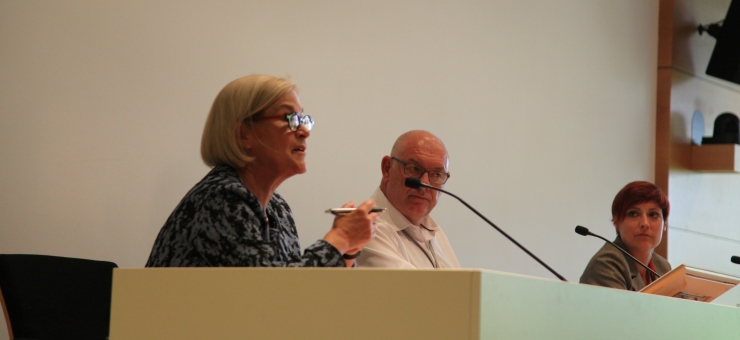MENU
Affiliates only
Login
Login

Technology is rapidly changing how we do our jobs—and nowhere is that truer than in post and logistics. That is why the UNI Post and Logistics global meeting addressed the future world of work head on last week.
“Post and logistics is at the forefront of globalisation and the forefront of technological change, which we often call the Fourth Industrial Revolution,” said Dave Ward, General Secretary of the CWU and President of UNI’s Post and Logistics. “Unions in these industries must recognise that this is a critical moment, and we must demand a bold new deal for working people. That’s the future we fight for.”
The struggle for justice in the sector relies on a unified movement.
UNI Deputy General Secretary Christy Hoffman said, “We are standing together against the seemingly unceasing pressure to privatise postal services, and we are fighting logistics companies’ bogus claims that their workers are self-employed.
“Additionally, the fact that workers are uniting across national boundaries to take on employers like Amazon is a prime example that the seeds of resistance to excessive corporate power are being sown.”
Technology has been a double-edged sword in the sector. It creates opportunities for postal workers, for example, to expand their roles in communities, and it can assist logistics’ workers efficiency. However, it can also lead to unrealistic production quotas, job displacement, and precarious work.
“The question for post and logistics workers is how can we harness the power of new technologies to raise standards in our sector, and a united global labour movement is clearly a big part of the answer,” said Cornelia Broos, Head of UNI Post and Logistics. “Training, innovative ways to use the postal network, developing protocols on reasonable workloads, and fighting precarious work are all needed.
“After this meeting, we are in a better position to keep fighting for good jobs and good services in the face of change.”